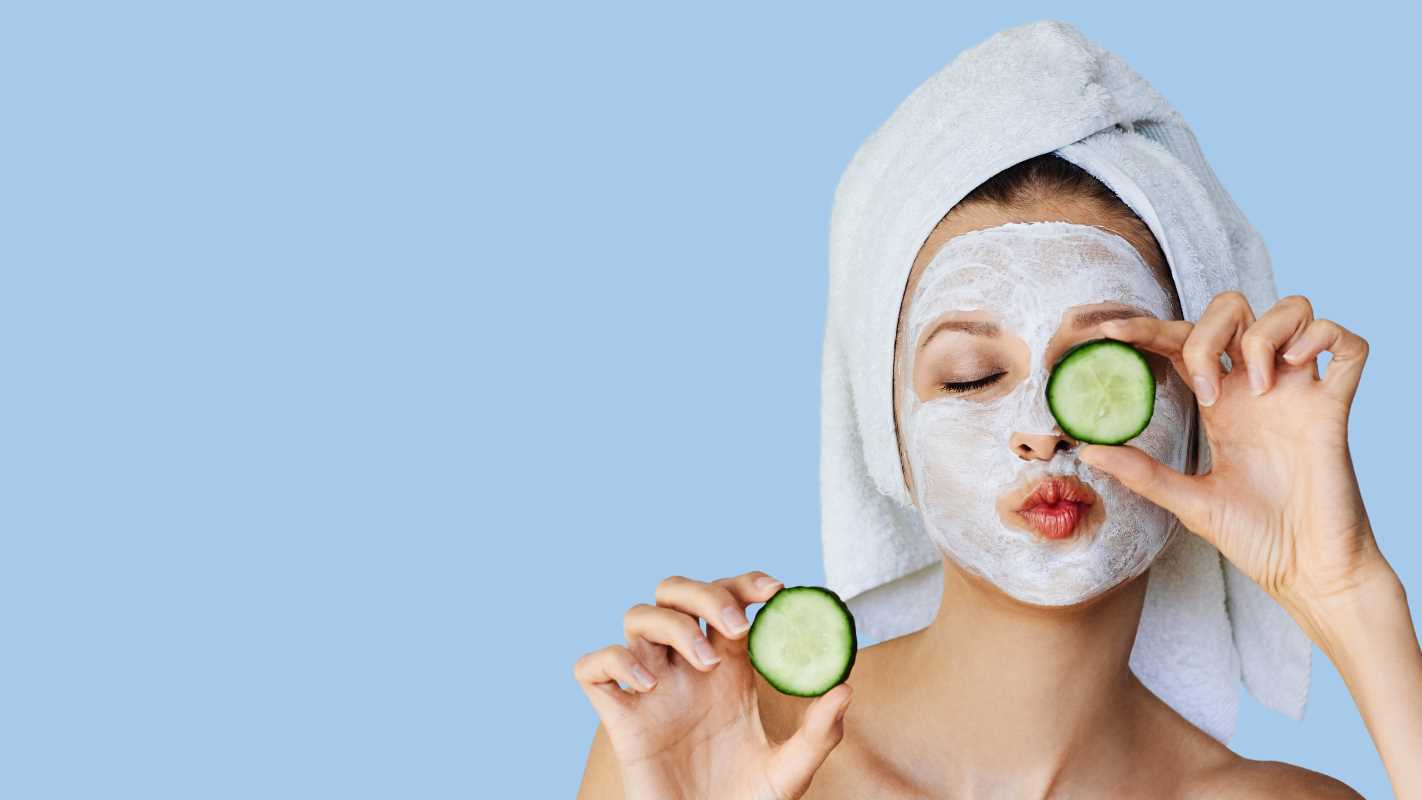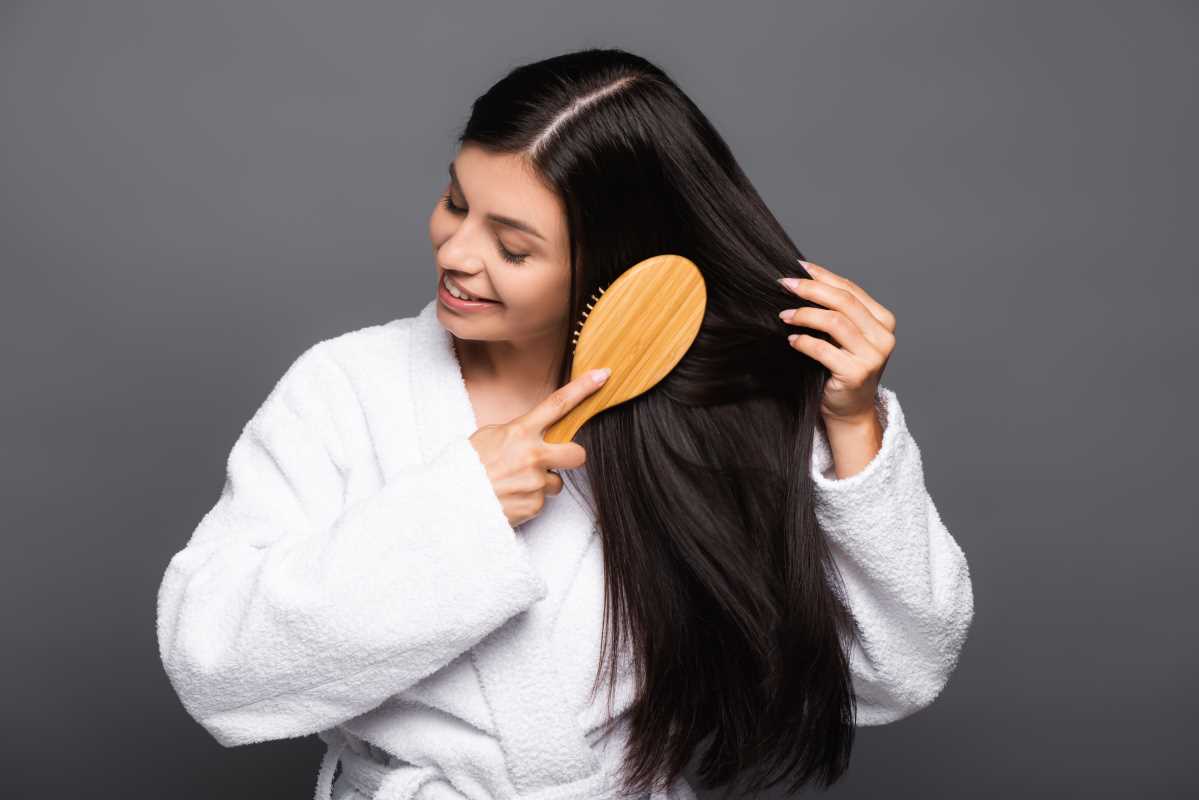Collagen seems to be the Beyoncé of the skincare world right now. Everyone wants it, everyone talks about it, and it’s the secret star behind that coveted dewy glow and plump, bouncy skin.
But if you’re vegan or trying to avoid animal-derived products, traditional collagen poses a bit of a dilemma since it’s typically sourced from animal bones or fish scales. Enter vegan collagen, the plant-powered alternative that’s generating plenty of buzz. If you’re curious what all the hype is about or just wondering how it stacks up to the original, buckle up. It’s time to peel back the layers and see if vegan collagen can truly work for firmer, more hydrated skin.
What Even Is Vegan Collagen
For starters, it’s important to understand what collagen is. Collagen is the most abundant protein in your body, acting as the scaffolding that keeps things like your skin, hair, joints, and nails strong and supple. Think of it as the glue that holds you together. Natural collagen production in your body, however, declines as you age, which is why skincare products proudly tout “collagen-boosting” on every other label. Traditional collagen supplements come from animal sources, but vegan collagen takes a completely different approach.
Vegan collagen isn’t made from plants but rather by using plant-based inputs to create a bio-identical version of human collagen. It’s a clever work of biotechnology, where scientists use things like yeast and bacteria to produce collagen through a fermentation process. They give these microorganisms the blueprint (a.k.a. specific genes) needed to manufacture collagen proteins, and voilà, completely animal-free collagen. It’s lab magic, with science saving the day for those wanting an ethical, eco-friendly option.
While it’s relatively new on the scene, vegan collagen offers exciting possibilities, not just for skincare but for overall health. The process is sustainable, cruelty-free, and tailored for anyone who prefers to keep their beauty routine plant-based. Plus, it’s an alternative that’s as inclusive as your friend who hosts vegan barbecues and serves jackfruit ribs.
How Vegan Collagen Works Its Magic
Much like the conventional kind, vegan collagen works by replenishing or stimulating the body’s baseline collagen levels. While slathering collagen on your face through creams and serums is mostly about surface-level hydration and creating a moisture barrier, ingesting collagen or using biotech-based synthetics is believed to go deeper. It’s about stimulating fibroblasts, the cells responsible for building more of your own collagen internally.
Vegan collagen powders and oral supplements contain amino acids like glycine and proline, which help provide the raw materials your body needs to patch up collagen deficits. Even though the science around how much collagen the body directly absorbs is still being debated, many brands include additional nutrients like vitamin C to boost the effectiveness. The vitamin C connection is vital because it acts like the ultimate sidekick in collagen formation, assisting in faster production.
Topical vegan collagen follows a slightly different path. While it doesn’t sink into deep layers of the skin, it acts as a moisture magnet on the surface. Vegan collagen often comes paired with humectants like hyaluronic acid, pulling water into the top layer of skin for immediate hydration while giving your skin that instantly plump, smooth appearance.
And unlike traditional collagen, which can be difficult to stabilize in skincare products, vegan collagen tends to play well in formulations. No funky smells, no sticky textures. Just straightforward, lightweight hydration and skin health support.
The Skin Benefits of Vegan Collagen
If you’ve spent any time googling “best ways to hydrate my skin,” you’re already familiar with the long list of collagen benefits. Vegan collagen continues to tick those same boxes, showing potential to improve skin’s firmness, elasticity, and hydration levels.
Collagen, regardless of its source, is deeply tied to maintaining the structure of your skin. Over time, as your own collagen supply dwindles, that structure becomes weaker, showing up as sagging, fine lines, or wrinkles. By introducing vegan collagen to your skincare routine, you could help reinforce the skin barrier, keeping everything more resilient and, well… less gravity-prone.
Along with keeping your skin firm, vegan collagen hydrates like a champ. Research suggests that hydrated skin is not only healthier but also looks brighter and smoother, so if you’re tired of using filters to fake that dewy glow, adding vegan collagen could help you get the look IRL.
Vegan collagen can also defend against free radical damage. Collagen proteins work alongside antioxidants to create a protective shield against various forms of skin stress, from pollution to UV exposure (although you still absolutely need sunscreen. Be serious). Strengthening this natural defense system helps prevent premature aging and keeps your complexion looking younger for longer.
Here’s something else to smile about when it comes to vegan collagen. It tends to pair well with ingredients like peptides and ceramides, creating a powerhouse cocktail for your skin. These combinations turn your skincare routine into a spa-like experience, even if you’re just standing in front of your bathroom mirror at 7 a.m.
Comparing Vegan Collagen to the “Original”
If traditional collagen is the wise elder statesman of skincare, vegan collagen is the flashy new disruptor, but how do they truly compare? They’re similar in purpose, to improve skin health, but fundamentally different in how they’re sourced.
Traditional collagen comes directly from animals, making it immediately functional for humans in terms of protein support. Vegan collagen, on the other hand, replicates this functionality without the ethical dilemmas and environmental impact. No animals were harmed in the making of that collagen smoothie you make with oat milk.
While vegan collagen may be gentler on the planet, some argue that it might not match the efficacy of animal-derived collagen completely, especially since research around vegan alternatives is still emerging. That said, many brands up their game by combining vegan collagen with other skin-loving ingredients to make sure none of its power is lost in translation.
There’s also the consideration of digestion. Because vegan collagen is derived from microbes rather than animals, there’s less chance for digestive irritation or allergic reactions, making it a great pick for sensitive stomachs. Plus, the absence of animal content ensures that vegan collagen aligns entirely with many people’s ethical and dietary values.
Whether you choose the OG or the vegan version, the effectiveness will ultimately depend on consistency in using it. Neither is a one-and-done cure for glowing skin, so either way, it’s a marathon, not a sprint.







